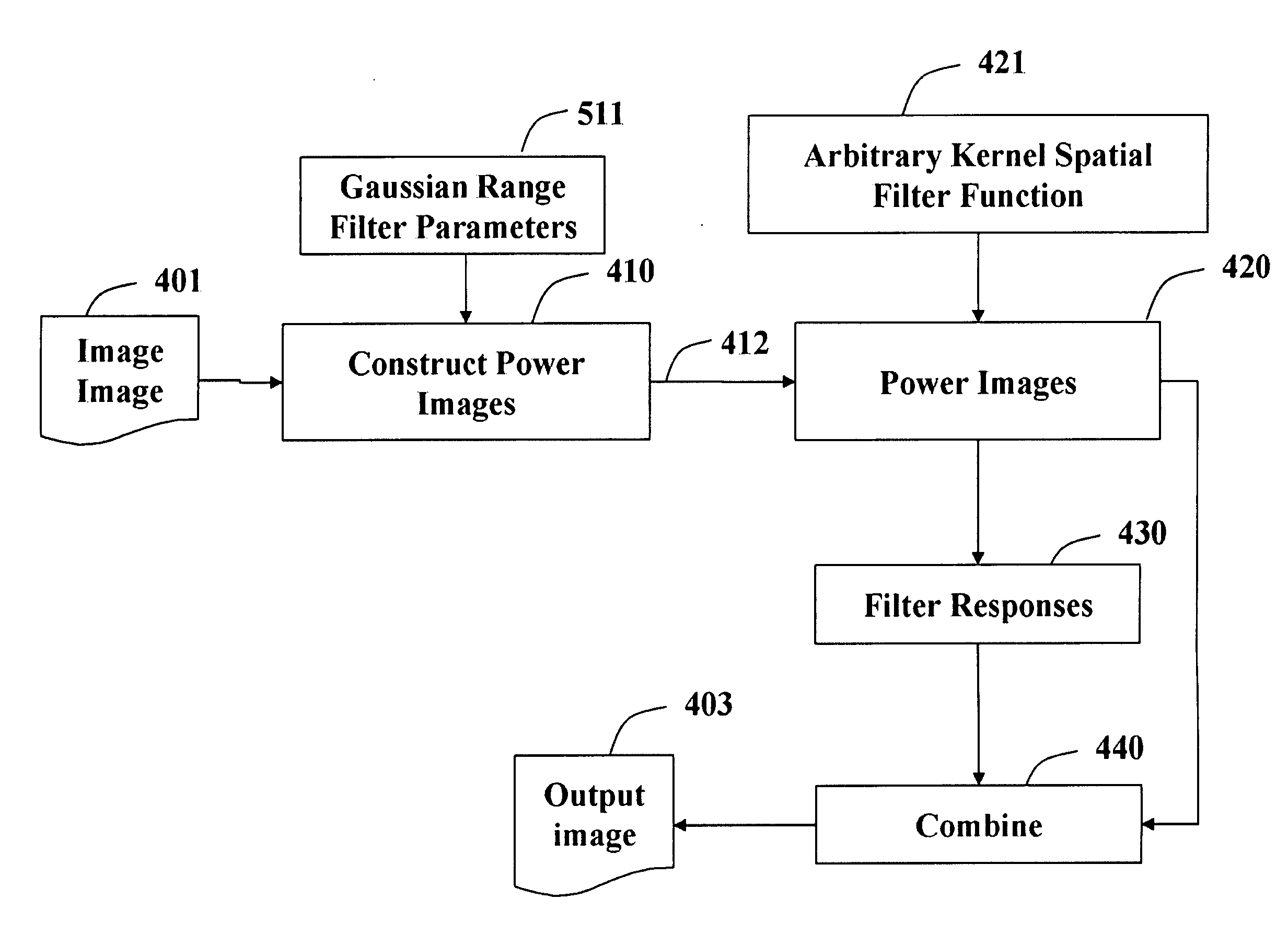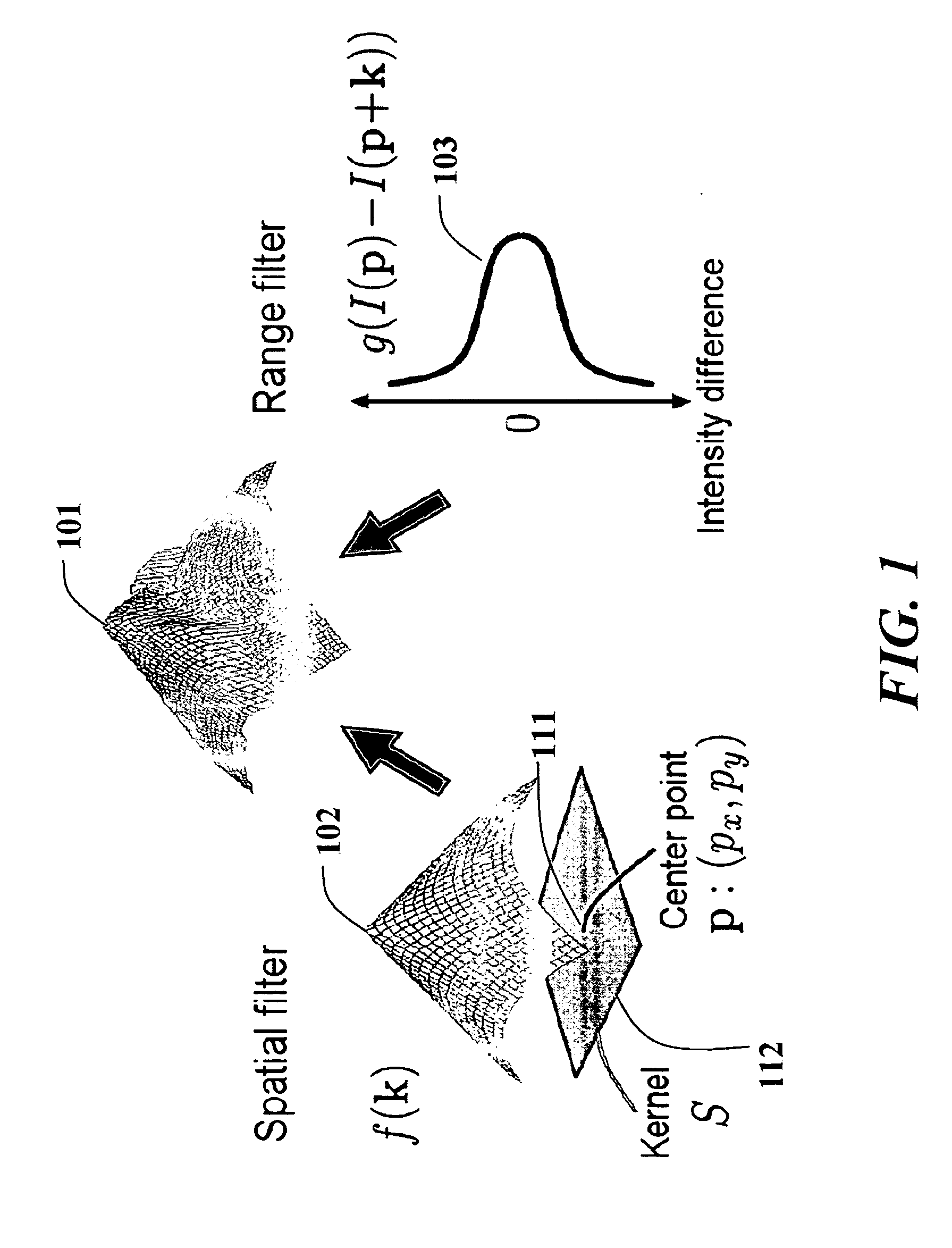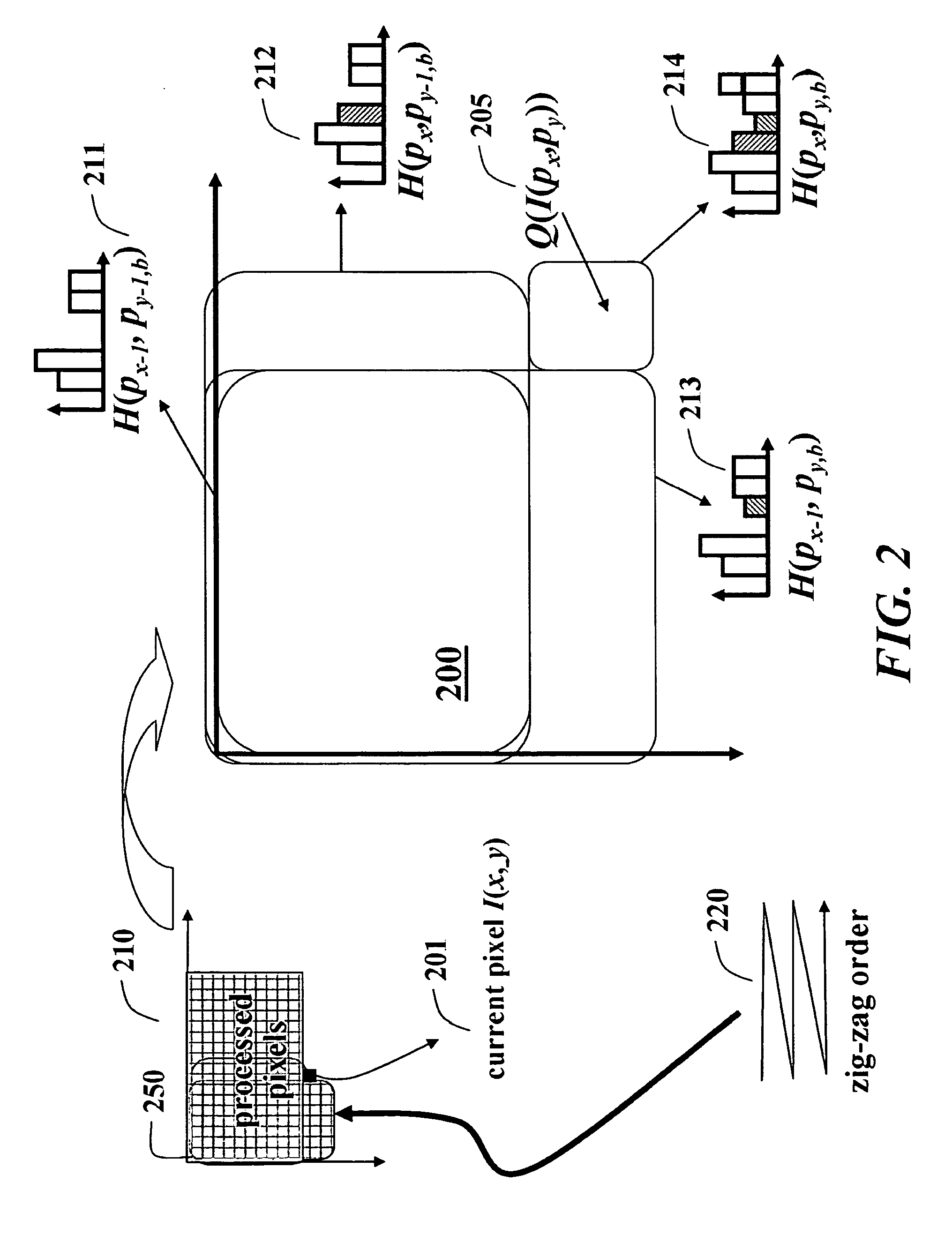Method for Filtering of Images with Bilateral Filters and Integral Histograms
a filter and image technology, applied in the field of filtering images, can solve the problems of loss of precision, computational complexity, and impracticality of even moderate filter radii, and achieve the effect of not increasing complexity
- Summary
- Abstract
- Description
- Claims
- Application Information
AI Technical Summary
Benefits of technology
Problems solved by technology
Method used
Image
Examples
Embodiment Construction
[0022]Bilateral Filtering
[0023]A filter f is a mapping defined in a d-dimensional Cartesian space The filter assigns an m-dimensional response vector (response) y(p)=[y1, . . . , ym] to each pixel p=[x1, . . . , xd] of an input image l bounded within N1, . . . , Nd and 0≦xii.
[0024]Generally, only a small set of pixels within a region of support S is used to determine the filter response. The region of support, which is centered around the pixel p, is called the filter footprint or kernel. Without loss of generality, the set of pixels maps to a scalar value, i.e., m=1 and y(p)=y1. An example embodiment uses single channel image filtering (d=2, m=1). However, the method can be extended to higher dimensions, color images and temporal video filtering.
[0025]A 2D image filter centered at the image pixel p applies its coefficients f(k) to the values of the underlying image pixels k+p within its kernel k=[kx, ky]∈ S.
[0026]For rectangular kernels, the coordinate of the center pixel can be as...
PUM
 Login to View More
Login to View More Abstract
Description
Claims
Application Information
 Login to View More
Login to View More - R&D
- Intellectual Property
- Life Sciences
- Materials
- Tech Scout
- Unparalleled Data Quality
- Higher Quality Content
- 60% Fewer Hallucinations
Browse by: Latest US Patents, China's latest patents, Technical Efficacy Thesaurus, Application Domain, Technology Topic, Popular Technical Reports.
© 2025 PatSnap. All rights reserved.Legal|Privacy policy|Modern Slavery Act Transparency Statement|Sitemap|About US| Contact US: help@patsnap.com



